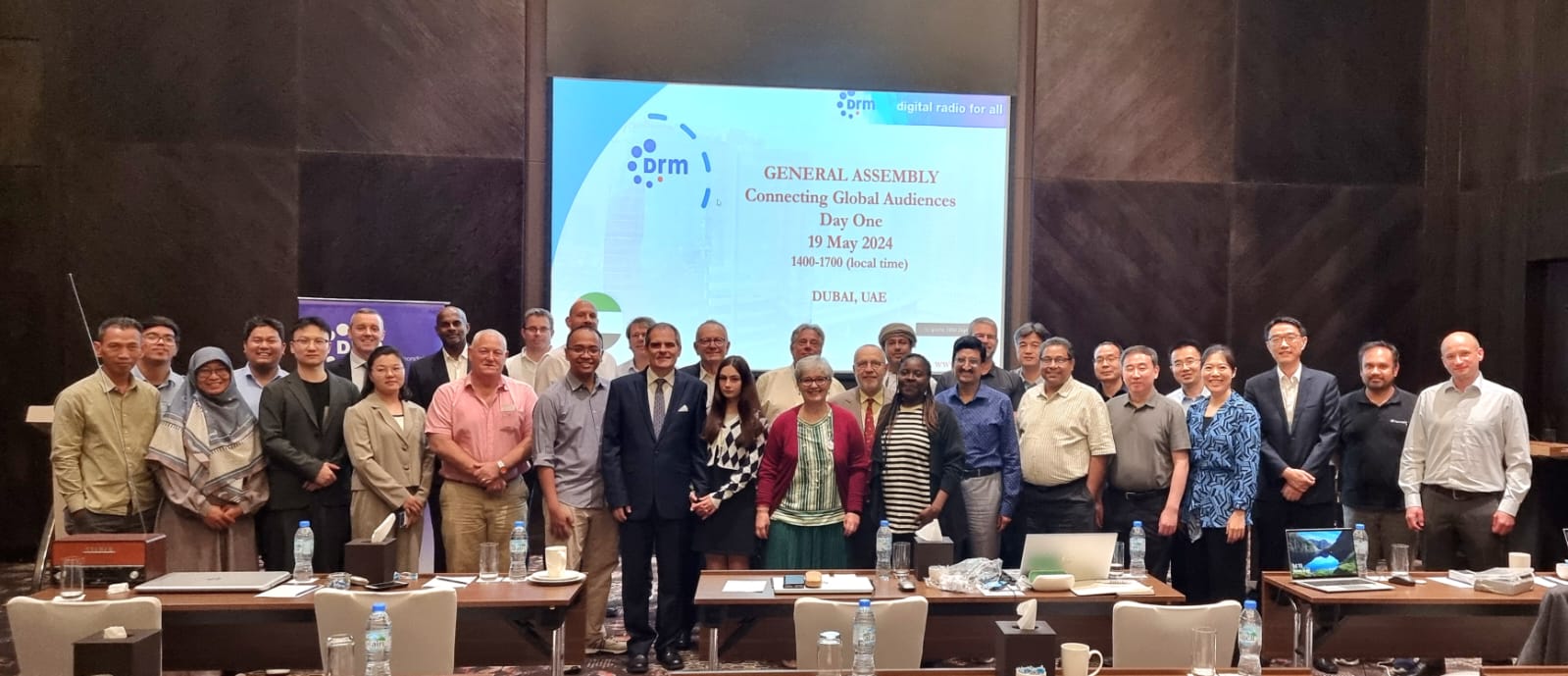The DRM Consortium held its general assembly in Dubai between May 19th-20th, which was actually more like an academic exchange conference. Gospell attended with members and guests from India, China, Indonesia, Canada, and Europe, as well as virtual guests from South Africa, other African countries, Myanmar, and Australia.

The DRM Consortium only exclusive to members, in this conference we reviewed DRM's progress over the past year, announced the election results of new officers to guide the Consortium's activities in the steering board and other bodies for the next two years (2024-2026).
The conference assessed DRM's worldwide promotion, evaluated new developments and practical applications of the standard. The conference also showcased new products announced by receiver manufacturers and chipset makers, including Cambridge Consultants/CML, GOSPELL, RF2Digital, Inntot, NXP, Fraunhofer IIS, and Starwaves. These products now support the full DRM standard (AM and FM) and a comprehensive suite of value-added DRM features such as Emergency Warning Functionality (EWF), remote learning, and additional content in various languages.
As invited guests, Gospell’s Mr. Haochun Liu presented at the conference, showcasing Gospell’s latest end-to-end DRM solutions designed to help broadcasters quickly achieve digital upgrades and transformations. He also introduced the world’s most compact DRM receiver, developed in collaboration with CML. Additionally, Gospell’s presentation discussed the applications of DRM in emergency broadcasting and in-car scenarios.
“It was a unique event that brought together a truly global audience whose increased interest in DRM was palpable”, says DRM Consortium re-elected chairman, Ruxandra Obreja. “We enjoyed providing good and comprehensive answers to the question on the future of DRM receivers. The varied solutions exist, as amply demonstrated during the GA. DRM can provide not only pure DRM receiver solutions for cars, mobiles and standalone but also solutions for receivers with a combination of standards recommended in several big countries.”